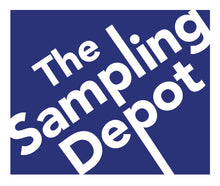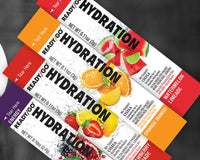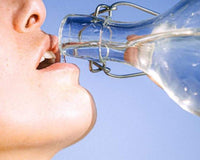When dehydration hits and a glass of water isn't enough, people are willing to try different solutions. This elixir promises a strong burst of hydration. Fans of Ready/Go Hydration love how it relieves dehydration symptoms.
Biography of Hydration
Adequate moisture levels are crucial for maintaining cognitive function and vitality. When the human body is deprived of sufficient fluids, it can lead to a decline in productivity and overall well-being. Throughout history, individuals have sought out various methods to replenish lost fluids and rejuvenate their bodies.
In recent years, a novel solution has emerged in the form of a powdered supplement. This innovative product asserts that it can provide an intense dose of hydration, making it an attractive option for those seeking to rapidly replenish their bodily fluids. By simply mixing the powder with water, "users claim that they can experience rapid rehydration.".. making it an appealing solution for individuals with active lifestyles or busy workdays.
Not Just Quenching Thirst
We all know we need to drink water, but understanding the *why* behind that advice is crucial for maintaining optimal health and well-being. Hydration goes far beyond simply alleviating a dry mouth; it's fundamental to nearly every bodily function. From regulating temperature to transporting nutrients, water plays an indispensable role. When we become dehydrated, even mildly, the effects can be surprisingly far-reaching.
The human body is composed of approximately 55% to 78% water, depending on factors like age and sex. This water is distributed throughout our cells, tissues, and organs, acting as a solvent, lubricant, and transport medium.
It’s involved in:
Regulating Body Temperature Sweating is a primary cooling mechanism, and it relies on sufficient water to be effective.
Nutrient Transport Water carries essential nutrients to cells and removes waste products.
Joint Lubrication Adequate hydration helps keep joints lubricated, reducing friction and discomfort.
Brain Function Even mild dehydration can impair cognitive function, affecting concentration, memory, and mood.
Digestive Health Water aids in digestion and prevents constipation.
Recognizing the Signs of Dehydration
Often, we don’t realize we're dehydrated until we experience noticeable symptoms. Being proactive about hydration involves recognizing the subtle cues your body sends. Common signs of dehydration include:
Thirst This is the most obvious indicator, but it’s often a sign that you're already mildly dehydrated.
Dry Mouth and Throat A lack of saliva production contributes to a dry, uncomfortable sensation.
Dark Urine Well-hydrated individuals typically have pale yellow urine. Darker urine indicates concentrated waste products due to insufficient water intake.
Headache Dehydration can trigger headaches in some individuals.
Fatigue Feeling tired or sluggish can be a sign that your body is struggling due to inadequate hydration.
Dizziness Low blood volume due to dehydration can lead to dizziness, especially when standing up quickly.
Muscle Cramps Electrolyte imbalances, often linked to dehydration, can contribute to muscle cramps.
Staying Properly Hydrated: Practical Tips
While individual hydration needs vary depending on factors like activity level, climate, and overall health, some general guidelines can help ensure you're adequately hydrated.
Drink Water Throughout the Day Don’t wait until you feel thirsty. Aim to sip water regularly throughout the day.
Carry a Water Bottle Having water readily available makes it easier to remember to drink.
Eat Hydrating Foods Fruits and vegetables like watermelon, cucumbers, and celery have high water content and can contribute to your overall hydration.
Hydrate Before, During, and After Exercise Physical activity increases fluid loss through sweat, so it's crucial to replenish fluids.
Be Mindful of Beverages While beverages like juice and soda contribute to fluid intake, they can also be high in sugar and calories. Prioritize water and unsweetened drinks.
Consider Electrolyte Drinks In situations involving intense sweating or prolonged activity, electrolyte drinks can help replenish lost sodium, potassium, and other essential minerals.
















